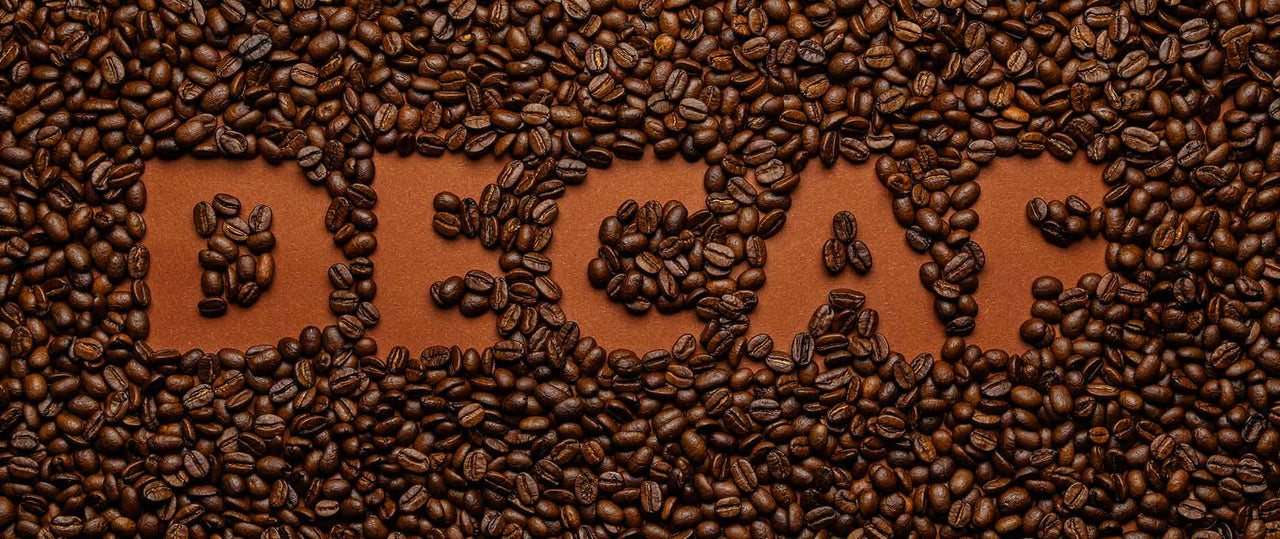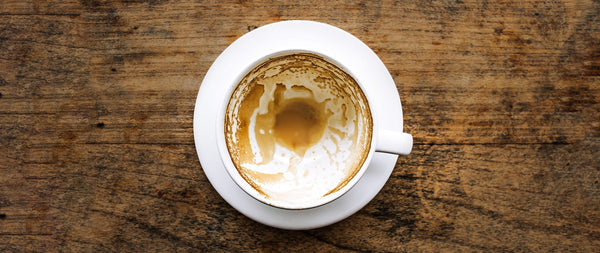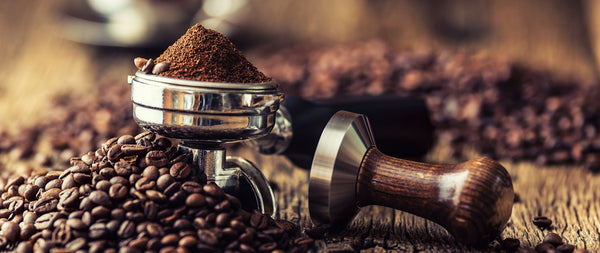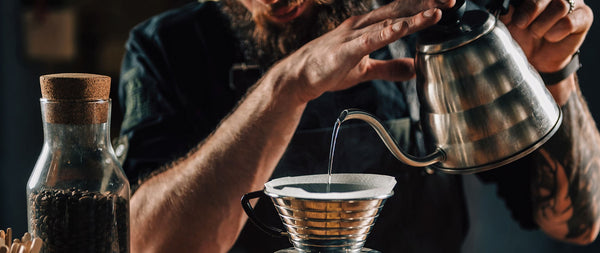It's late, and you don't want to stay up much longer, but you're craving the taste of a cozy, rich, hot cup of coffee. Naturally, the question, "Does decaffeinated coffee have caffeine?" pops into your head.
Whether it's that scenario or others that make watching your caffeine intake a somewhat serious matter, this is not an uncommon question.
For those with a high caffeine sensitivity, even a tiny amount of caffeine can have detrimental effects on their physical or mental state.
Pregnant and breastfeeding mothers may need to be watchful of their caffeine consumption. Caffeine can exacerbate anxious feelings in those known to struggle with anxiety, and the list continues with multiple other conditions that may call for a reduction in caffeine.
No matter what your situation is, knowing if decaf coffee is entirely without caffeine or if it contains minute amounts can be crucial to some and plain interesting for others.
For this reason and more, we've compiled top questions about decaffeinated coffee so you can drink it with ease.
Is Decaf Coffee Really Without Caffeine?
When it comes to coffee, many are under the misconception that decaf is completely caffeine-free. However, although much lower than its caffeinated counterpart, some doses of this stimulant still remain in a cup of decaf!
The National Coffee Association explains that the decaffeination process removes 97% of caffeine content. The remaining 3% is what's left over in any given cup of decaf coffee.
For reference, a standard regular 8oz cup of coffee contains 95 mg of caffeine. 3% of 95 is roughly 3mg of caffeine left in a cup of decaf coffee.
Of course, each brand of coffee has its own amount, with some being more. For example, a 10-12oz cup of Dunkin Donuts Decaf contains around 7mg of caffeine.
How Is Decaf Coffee Made?
There are multiple methods to produce decaffeinated coffee. The three main processes are the Swiss Water Process, the Carbon Dioxide Process, and a Solvent-Based Process.
The Swiss Water Process is the most natural or organic process. It starts with soaking the green beans in hot water, pulling the caffeine out of the beans along with other flavor components. The water is next passed through a filter that catches the caffeine molecules and lets other flavors and oils pass through. Finally, the filtered water reintroduces non-caffeine compounds back into the now-decaffeinated beans.
The solvent method is more popular because it's cheaper and can provide a better flavor consistency. For this kind of decaffeination process, ethyl acetate is used. First, the green coffee beans are steamed to make them porous, and ethyl acetate is combined with water and used as a "rinse" to extract the caffeine. This will happen over many hours to ensure an adequate amount of caffeine has been eliminated from the bean.
Using chemicals helps to speed up the decaffeination process, which allows the beans' natural oils and flavor components to stay intact.
The Carbon Dioxide Process has grown in popularity over recent years, although this process is more expensive than the other two. In this process, beans are again soaked in water, and highly pressurized CO2 is applied to coffee beans which bond with the caffeine molecules and plucks them right out. This process will still take hours to complete, but once it results in decaffeinated coffee beans they are moved onto their roasting process.
All of these three methods craftily take most of the bean's caffeine out, leaving behind very low caffeine levels.
Is It Healthy To Drink Decaffeinated Coffee?
Yes, it is safe and healthy to drink decaffeinated coffee.
Since caffeine can cause some adverse side effects to those who have predisposed conditions, decaffeinated coffee is a superb alternative, relishing their delicious morning cup of joe without worry.
For those who can tolerate lots of caffeine well but desire to cut back, decaf coffee is a great way to meet their goal. Without cutting back on their cups of coffee daily, they can cut back on their total caffeine levels per day.
However, because of the chemical solvents used in some decaffeination processes, many may wonder if this is healthy and safe for them to consume.
In a short answer, yes, it is.
In a longer answer, here's why: Over time, the chemical solvents used in this process have changed. Ethyl acetate, the most commonly used solvent in this process, is derived from fruits and vegetables. Other harmful chemicals, or ones now known to be carcinogenic, are no longer used.
Also, very tiny amounts, if none at all, of the chemical residue remain after the caffeine extraction process as it's generally washed away entirely. Even after roasting, the ethyl acetate has completely evaporated, leaving almost zero residual chemicals in the bean.
Because of the use of methylene chloride, another chemical sometimes used in the solvent decaffeination process, the FDA has set high standards to maintain the safety of this process for future consumers.
For example, the FDA's federal regulation for methylene chloride only allows "a level not to exceed 10 parts per million (0.001 percent) in decaffeinated roasted coffee."
So, after all of this being said, is decaf coffee safe and healthy to drink? Have confidence that it certainly is.

Does Decaf Coffee Contain Other Nutrients?
Decaffeinated coffee still contains most of its nutrients, including many antioxidants like hydrocinnamic acids and polyphenols.
Decaf coffee still contains essential vitamins and minerals, including niacin, potassium, and magnesium.
In addition to these nutrients and benefits, decaffeinated coffee may also help reduce certain risks of heart disease and type 2 diabetes like regular coffee.
What Are The Side Effects Of Decaf Coffee?
There are no severe or proven adverse side effects to decaf coffee.
The only concern in the past with decaf coffee was the use of methylene chloride, as this chemical could be detrimental to one's health.
However, as mentioned above, the FDA has regulated the trace allowable amounts as residuals on the beans, meaning if any, if any at all, remnants of these chemicals remain, they would be too small to provide any adverse side effects.
Decaf Espresso
If you're looking for the best decaf espresso- look no further.
Our Espresso Crema Dolce Decaf is decaffeinated using the carbon dioxide process, leaving behind absolutely no possible trace chemicals in your favorite morning drink.
As a matter of fact, without the high amount of caffeine, this decaf espresso might just become your favorite afternoon and evening drink as well!
As a medium espresso roast, you'll find a deep, rich body, and full of flavor that you might never be able to tell this is a decaf coffee. Taste the milk chocolate and vanilla tones, and try to tell us you have yet to fall in love with this decaf roast.
In Summary
So, does decaffeinated coffee have caffeine?
Yes, but very, very little amounts of caffeine. An average cup of decaf coffee contains around 2-7mg of caffeine, some being lower and higher depending on the brand, and method of decaffeination, and starting caffeine levels in the beans.
For those trying to reduce their daily caffeine intake, need to cut down for medical reasons, or notice that caffeine exacerbates anxious feelings, a decaffeinated roast may be the answer to their coffee prayers.
Please, always discuss with your doctor if the residual milligrams of caffeine in a decaf roast is still ok to consume if you need to watch your caffeine intake for serious conditions.
Aside from that, decaf coffee is safe and healthy to drink, containing almost all of the same antioxidants, vitamins, and minerals that regular caffeinated coffee contains.
Our Decaf Espresso Crema Dolce is always high on our craving list with its sweet undertones and rich body. Made using the CO2 extraction method, you can feel confident no added chemicals were used in its decaffeination process.
Now you can enjoy that decaf cup of coffee with your evening dessert without worrying about being jittery or wide awake! But, be sure to only have the BEST decaf coffee on hand- our Espresso Crema Dolce Decaf.





